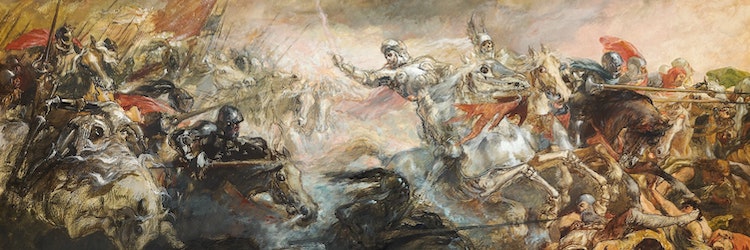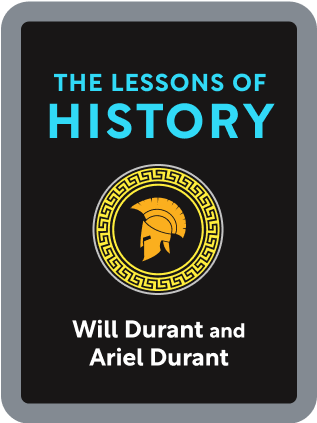

This article is an excerpt from the Shortform book guide to "The Lessons of History" by Will Durant and Ariel Durant. Shortform has the world's best summaries and analyses of books you should be reading.
Like this article? Sign up for a free trial here .
What causes war? Is war inevitable and even necessary?
In The Lessons of History, Will and Ariel Durant share what they learned about war in their extensive research of human history. What causes war, they conclude, are the same factors that cause individuals to fight. They also reflect on war and peace in the era of the global communist threat.
Read more to learn a historical perspective on what causes war.
War and History
War is a constant in history, there being only 268 years of no war in 3421 years of history. But what causes war? War occurs for the same reason individuals fight: to compete for more resources and power, for pride, and to survive under threat. Peace is accomplished only through acknowledged supremacy or equal power. “The Ten Commandments must be silent when self-preservation is at stake.”
The state inherits the will of the individual, without the individual’s normal boundaries. The individual is constrained by morals and laws, because the state guarantees him basic protection in exchange for his submission. But the state is unfettered, either because it is strong enough to defy interference with its will, or because there is no superstate to offer it protection.
Nationalism gives added force in diplomacy and war. Improving communication and means of indoctrination made nationalism far more effective and pervasive than centuries past, involving civilians and combatants.
When we consider what causes war, we should consider peace. Philosophers will wax about pacifism, but generals believe that war is necessary and, in the military interpretation of history, the final arbiter. The Durants offer a couple of observations:
- What would have happened to our heritage if it were not protected against Mongol invasions?
- A society that enjoys a long peace may atrophy its martial muscles, making it susceptible to outside attack.
The Threat of Communism
The book was written in the 1970s, and the authors consider what to do about communism, if it threatens to engulf Asia, Africa, and South America.
Russia industrialized rapidly under a model of state control. Young nations in developing areas want to imitate this, and so are eager to replicate its practices.
Should America, at the height of its power, withdraw and let hostile states encroach; or should it consider what future generations wish they had done? Should it resist once, fight on foreign soil, and make the necessary sacrifice to protect America and democracy?
There are two schools of thought. The philosopher will suggest that the destructiveness of military weapons is unprecedented, and humanity should try a new approach in defiance of history. The philosopher suggests the President should be conciliatory, agreeing to mutual peace and commitment and avoiding subversion and betrayal. We should seek mutual understanding and chances to learn from one another, attempting a radical experiment in history.
In contrast, the general laughs, thinking the philosopher has forgotten all of history and what causes war, especially the competitive nature of man. The general believes some fundamental differences cannot be negotiated away, that subversion will continue happening regardless of what is said on the surface, and that world order will arise from a victory so decisive that it will dictate international law. Groups unite only in the face of a common enemy, and mankind will become one only if it faces a foreign enemy together.
What causes war? Although the reasons vary somewhat over time and from place to place, the underlying themes of competition, pride, and survival are as constant as war itself.

———End of Preview———
Like what you just read? Read the rest of the world's best book summary and analysis of Will Durant and Ariel Durant's "The Lessons of History" at Shortform .
Here's what you'll find in our full The Lessons of History summary :
- What we can learn from studying 5,000 years of history
- How human nature hasn’t changed over thousands of years
- Why all civilizations, including ours, fall, and why we shouldn’t cry about it






